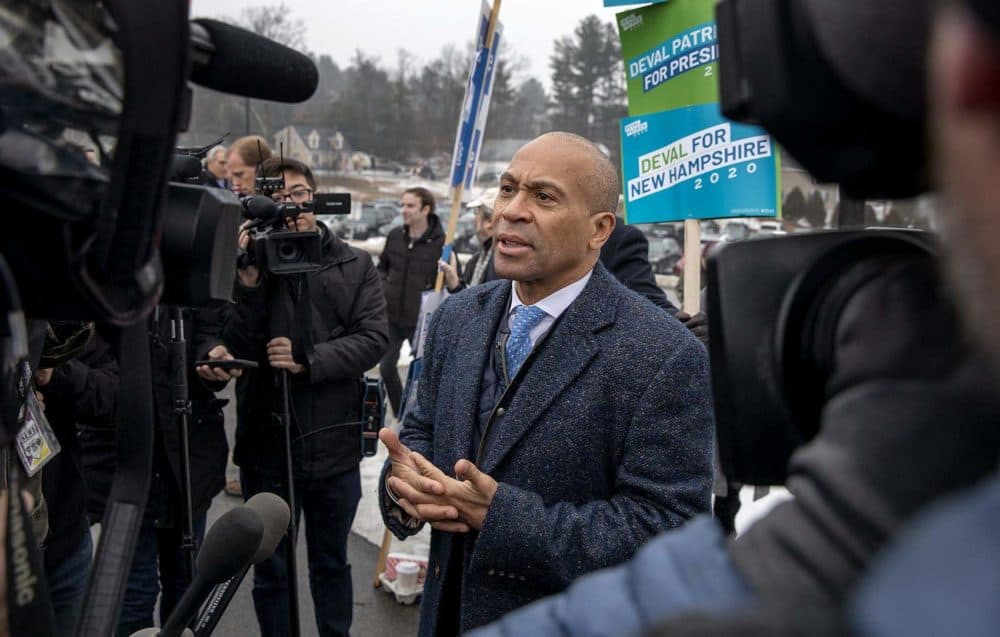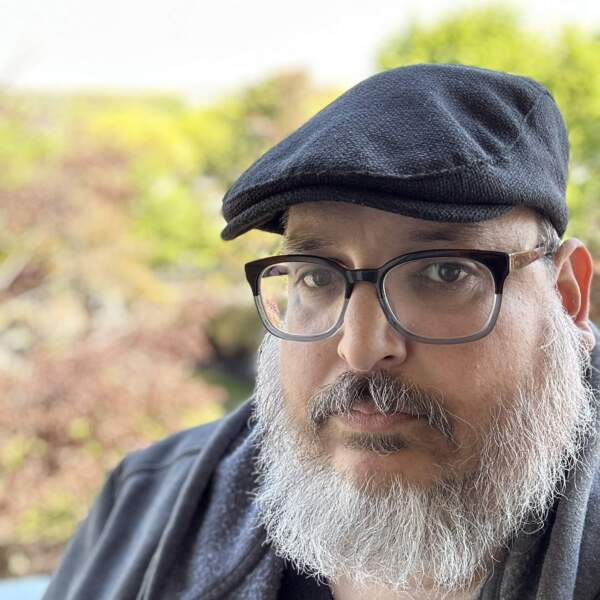Advertisement
Deval Patrick Drops Out Of The Presidential Race
Resume
After a dismal performance in New Hampshire Tuesday, Deval Patrick is suspending his presidential campaign.
"[T]he vote in New Hampshire last night was not enough for us to create the practical wind at the campaign’s back to go on to the next round of voting," Patrick said in an email to supporters Wednesday.
The former Massachusetts governor has long acknowledged the odds were against him as a late entry last November to the crowded field of Democratic primary hopefuls.
His campaign never gained traction, despite outraising his competitors among Massachusetts donors in his first months — a brief bright moment in his run.
Patrick, 63, has been open that his wife Diane Patrick's health delayed his entry into the race. Diane Patrick had been diagnosed with uterine cancer but is now healthy.
"That’s exactly the kind of thing that brings you to the ground," he said while addressing supporters in January. "So we stepped back. That felt like the right thing to do. I still think it’s the right thing to have done."
In an interview with WBUR in December 2018, when he first swore off a presidential run, Patrick described the presidential campaign process as "cruel."
"Our party has to offer a positive alternative — in other words, more than just a perfected critique of the current administration," he said in the 2018 interview. "As angry as we have a right to be, as concerned, frankly, as we all ought to be of the state of democracy, I think what makes a difference is that we have a positive alternative agenda and a positive alternative vision to offer the American people."
On the trail, Patrick made a point greeting and shaking hands with people holding signs for other candidates at the polls, including Trump backers. This "play nice with others" theme became cornerstone of Patrick’s platform, something he referred to as “a better way.” Patrick strove to bring a civilized tone to the public discourse, and to do his part to address the cavernous split in U.S. politics he saw harming the country.
“The nation is yearning for bridges between and over our differences,” Patrick told supporters gathered at his election night headquarters in Manchester Tuesday. “They are as hungry as any of us in finding a way back home, to a conviction around a set of common American ideals.”
But Patrick's effort to make good on his positive vision ultimately failed to resonate with voters. Lacking the money and organization of his rivals, he concentrated his campaign on New Hampshire and South Carolina. Throughout his quixotic campaign, many of his friends and supporters wondered just what his rationale was for getting into the race. He scoffed at reporters' questions about whether he was running to raise his profile for a position in federal government, should a Democrat win the White House in November.
In his statement ending his campaign, Patrick acknowledged to supporters that "this setback is hard" but he asked them to keep perspective.
"Hard is serving your country in the military and not being able to live off the streets when you come home. Hard is being called the N word by fellow citizens leaving and inspired by a rally for the President of the United States. Hard is trying to vote when your own government doesn’t believe you should have a say," Patrick said in his statement.
"No one can stand on the sidelines at a time like this. I, for one, will not. Failing to engage risks losing a lot more than an election next November," he concluded.
Patrick's exit, along with that of Andrew Yang on Tuesday, further reduces the diversity of the Democratic field, just as the primary calendar turns to Nevada and South Carolina — states where voters of color will play a much larger role than Iowa and New Hampshire.
When he first ran for Massachusetts governor in 2006, Patrick faced similar long odds. But his electric style on the campaign trail sparked an insurgent campaign that overwhelmed the putative favorite, former Mass. Attorney General Tom Reilly, and long-time political player Chris Gabrieli. That enthusiasm carried into the general election, when he bested then-Lieutenant Gov. Kerry Healey and independent Christy Mihos.
Following his two terms as governor, Patrick joined the Boston investment firm Bain Capital, the same one-time home of another Massachusetts governor-turned-presidential hopeful, Mitt Romney, who serves as a reminder that political ambitions do not always die with the end of a presidential campaign.
This segment aired on February 12, 2020.

